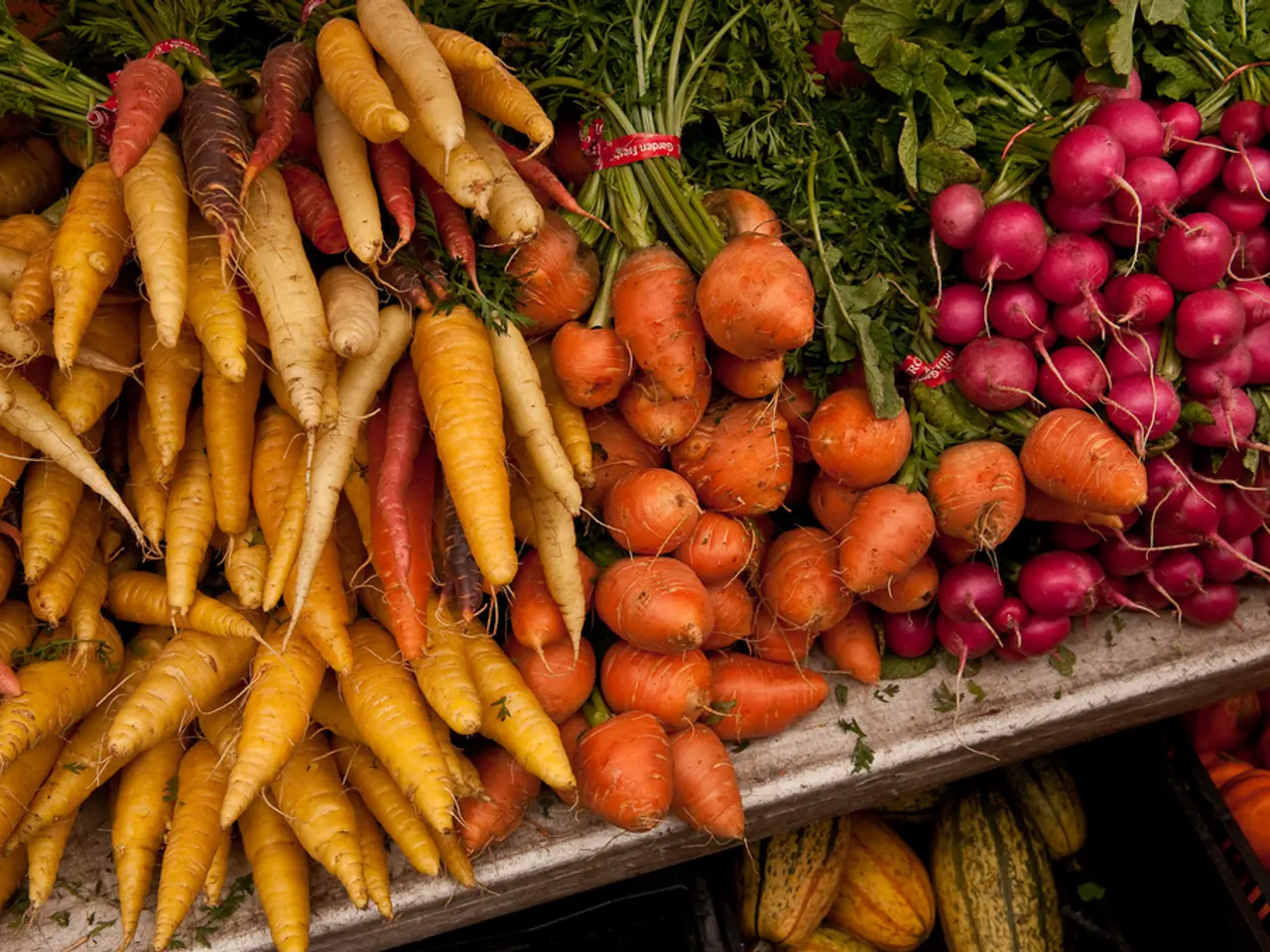Nightshade vegetables and arthritis inflammation: Are they linked?
In a world where misconceptions about food and health abound, it's essential to separate fact from fiction. One such controversy surrounds nightshade vegetables, such as potatoes, tomatoes, eggplants, and peppers, and their alleged link to inflammation and arthritis flare-ups.
Contrary to popular belief, **scientific evidence does not support a direct link between nightshade vegetables and increased inflammation or arthritis flare-ups for most people.** Multiple expert sources and studies indicate that the commonly held belief is largely a myth.
Doctors and researchers emphasize that the alkaloid solanine found in nightshades does not have a proven inflammatory effect in humans with arthritis. While some individuals may report personal sensitivity or worsening of symptoms after consuming nightshades, these cases are not confirmed by controlled research and may be due to allergies or individual intolerances rather than a general inflammatory response.
Despite the myth, nightshades are rich in nutrients and antioxidants. Tomatoes, for example, are very high in vitamins C, A, and K, and contain the antioxidant lycopene. Potatoes (all colours) offer nutritional value including fibre, vitamin C, and vitamin B6. Bell peppers are high sources of vitamins A and C, potassium, and folate, while eggplant is a high source of fiber, potassium, and vitamins B1, B6, and K.
Moreover, certain nightshade vegetables, such as peppers, contain anatabine, a chemical with powerful anti-inflammatory effects. Furthermore, potatoes contain chlorogenic acids (CGA), which may help reduce high blood pressure and the risk of type 2 diabetes, with red and purple potatoes having greater amounts than white potatoes. Purple potatoes may also reduce inflammation and DNA damage due to their high antioxidant content.
Tomatoes contain health-promoting compounds like lycopene, a powerful antioxidant linked to numerous health benefits, including reducing the risk of certain cancers.
However, some studies suggest avoiding certain nightshade vegetables in an anti-inflammatory diet due to solanine's potential effects on the intestines and gastrointestinal microbiota. Green potatoes, which contain high levels of solanine, are toxic and should be avoided.
If a person suspects a food intolerance or allergy to nightshades, they can remove them from their diet and observe the effects on their symptoms. Non-nightshade vegetables that can replace nightshades include sweet potatoes, yams, cauliflower, and mushrooms.
In conclusion, while a small subset of individuals may experience symptoms due to individual sensitivity or allergy, for the majority of people, nightshade vegetables do not provoke inflammation or worsen arthritis. These vegetables remain a nutritious part of most diets. It's always advisable to consult with a healthcare provider before making significant dietary changes.
Meanwhile, other foods rich in anti-inflammatory compounds include oily fish, such as salmon, tuna, and anchovies, which are high in omega-3 fatty acids with anti-inflammatory effects. Colorful fruits and vegetables like blueberries, cherries, kale, and broccoli are full of antioxidants to support the immune system. Nuts, such as walnuts, pine nuts, and almonds, also contain anti-inflammatory compounds. Olive oil contains antioxidants, monounsaturated fat, and the compound oleocanthal, which can reduce inflammation and pain.
- Certain medical-conditions, like depression, Crohn's disease, and ankylosing spondylitis, are often characterized as chronic diseases due to their long-term nature.
- A predictive study indicated that individuals with psoriatic disease might experience co-morbidities such as COPD and other chronic diseases.
- The medical-community continues to research the effects of various foods on health-and-wellness, including nightshade vegetables and their impact on chronic-diseases like arthritis.
- Some evidence suggests that the nutritional facts of nightshade vegetables can contribute positively to fitness-and-exercise, providing essential vitamins and antioxidants such as vitamins A, C, and K.
- Tomatoes, a type of nightshade vegetable, have been identified as a rich source of the antioxidant lycopene, which is linked to reducing the risk of certain cancers.
- Arthritis, while a debilitating condition, is not solely influenced by diet, as recent studies contradict the myth of nightshade vegetables' inflammatory effects for the majority of people.
- In the realm of health-and-wellness, science continues to uncover the benefits of a diverse diet, including incorporating nightshade vegetables and foods rich in anti-inflammatory compounds, such as oily fish, nuts, and colorful fruits.
- AQ (an alkali metal) and other essential minerals have not been established as nutrients present in nightshade vegetables, unlike vitamins and antioxidants, which are abundant in these vegetables.








